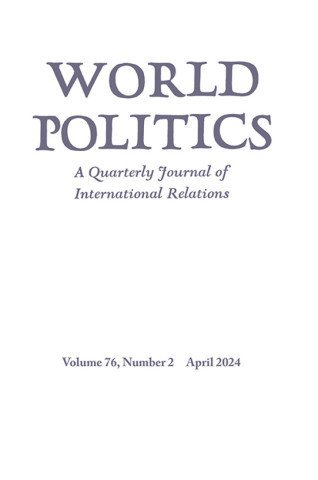再也没有
IF 2.5
1区 社会学
Q1 INTERNATIONAL RELATIONS
引用次数: 6
摘要
以前成为种族灭绝目标的个人是否变得更加支持其他受害群体?这些政治教训是如何内化并代代相传的?为了回答这些问题,作者利用了从美国大屠杀幸存者及其后代、与大屠杀没有直系亲属关系的犹太人以及非犹太裔美国人中收集的原始调查数据。他们发现,历史上的受害与对弱势群体的支持增加有关,从而产生稳定的政治态度,并在几代人之间持续下去。大屠杀幸存者最支持帮助难民,其次是他们的后代,特别是那些从小就与幸存者亲属讨论大屠杀的人。一项嵌入式实验证明了这些态度的坚定性:与非犹太人或没有幸存者亲属的犹太人不同,幸存者和后代对难民的看法在阅读了群体内与群体外对“永不再来”命令的保护解释后并没有改变。受害历史可以在群体间关系中发挥改善作用。本文章由计算机程序翻译,如有差异,请以英文原文为准。
Never Again
Abstract Do individuals previously targeted by genocide become more supportive of other victimized groups? How are these political lessons internalized and passed down across generations? To answer these questions, the authors leverage original survey data collected among Holocaust survivors in the United States and their descendants, Jews with no immediate family connection to the Holocaust, and non-Jewish Americans. They find that historical victimization is associated with increased support for vulnerable out-groups, generating stable political attitudes that endure across generations. Holocaust survivors are most supportive of aiding refugees, followed by descendants, especially those who grew up discussing the Holocaust with their survivor relatives. An embedded experiment demonstrates the steadfastness of these attitudes: unlike non-Jews or Jews without survivor relatives, survivors’ and descendants’ views toward refugees do not change after reading an in-group versus out-group–protective interpretation of the “never again” imperative. Histories of victimization can play an ameliorative role in intergroup relations.
求助全文
通过发布文献求助,成功后即可免费获取论文全文。
去求助
来源期刊

World Politics
Multiple-
CiteScore
8.40
自引率
0.00%
发文量
24
期刊介绍:
World Politics, founded in 1948, is an internationally renowned quarterly journal of political science published in both print and online versions. Open to contributions by scholars, World Politics invites submission of research articles that make theoretical and empirical contributions to the literature, review articles, and research notes bearing on problems in international relations and comparative politics. The journal does not publish articles on current affairs, policy pieces, or narratives of a journalistic nature. Articles submitted for consideration are unsolicited, except for review articles, which are usually commissioned. Published for the Princeton Institute for International and Regional Affairs
 求助内容:
求助内容: 应助结果提醒方式:
应助结果提醒方式:


